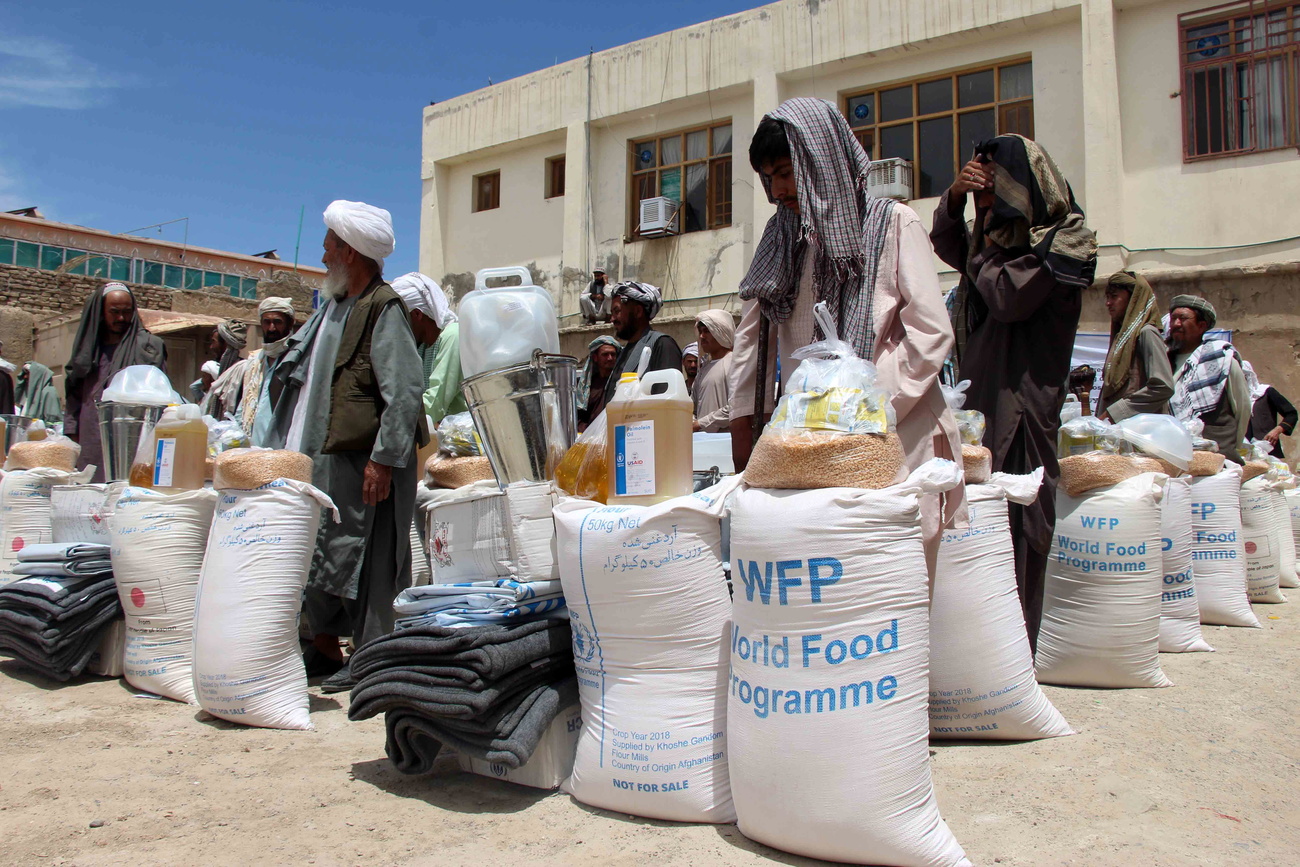
Swiss development aid spending climbs slightly

Switzerland spent CHF3.59 billion ($3.85 billion) on official development aid in 2021, or 0.51% of gross national income (GNI), the foreign ministry said on Tuesday.
The figure marks an increase of CHF243 million on the previous year, which had in turn seen a boost in funding thanks to international efforts to tackle the Covid-19 pandemic.
In 2021, major elements of Swiss development aid included emergency funding for Afghanistan (a further CHF26 million was approved by the parliament to help the humanitarian crisis) as well as the donation of unused Covid-19 vaccines and medical supplies to developing countries, the ministry wroteExternal link.
Swiss overseas development assistance also includes costs associated with assisting refugees and asylum seekers in the country, which came to CHF337 million in 2021; without counting them, the total percentage of GNI spent on aid would have been 0.46%.
Inflating the figures
On Tuesday, Alliance Sud, an umbrella organisation representing various aid groups, said Switzerland was “inflating its expenses” by adding the asylum costs and the extra Covid-19 vaccines donated abroad.
The official United Nations target for development aid spending is 0.7% of GNI. In 2021, however, only Norway, Sweden, Luxembourg, Denmark and Germany managed to reach this, among members of the Organisation for Economic Cooperation and Development (OECD), which also released statistics on Tuesday.
Switzerland was the eighth most generous country in the 38-member OECD for aid spending last year.

In compliance with the JTI standards
More: SWI swissinfo.ch certified by the Journalism Trust Initiative






























You can find an overview of ongoing debates with our journalists here . Please join us!
If you want to start a conversation about a topic raised in this article or want to report factual errors, email us at english@swissinfo.ch.